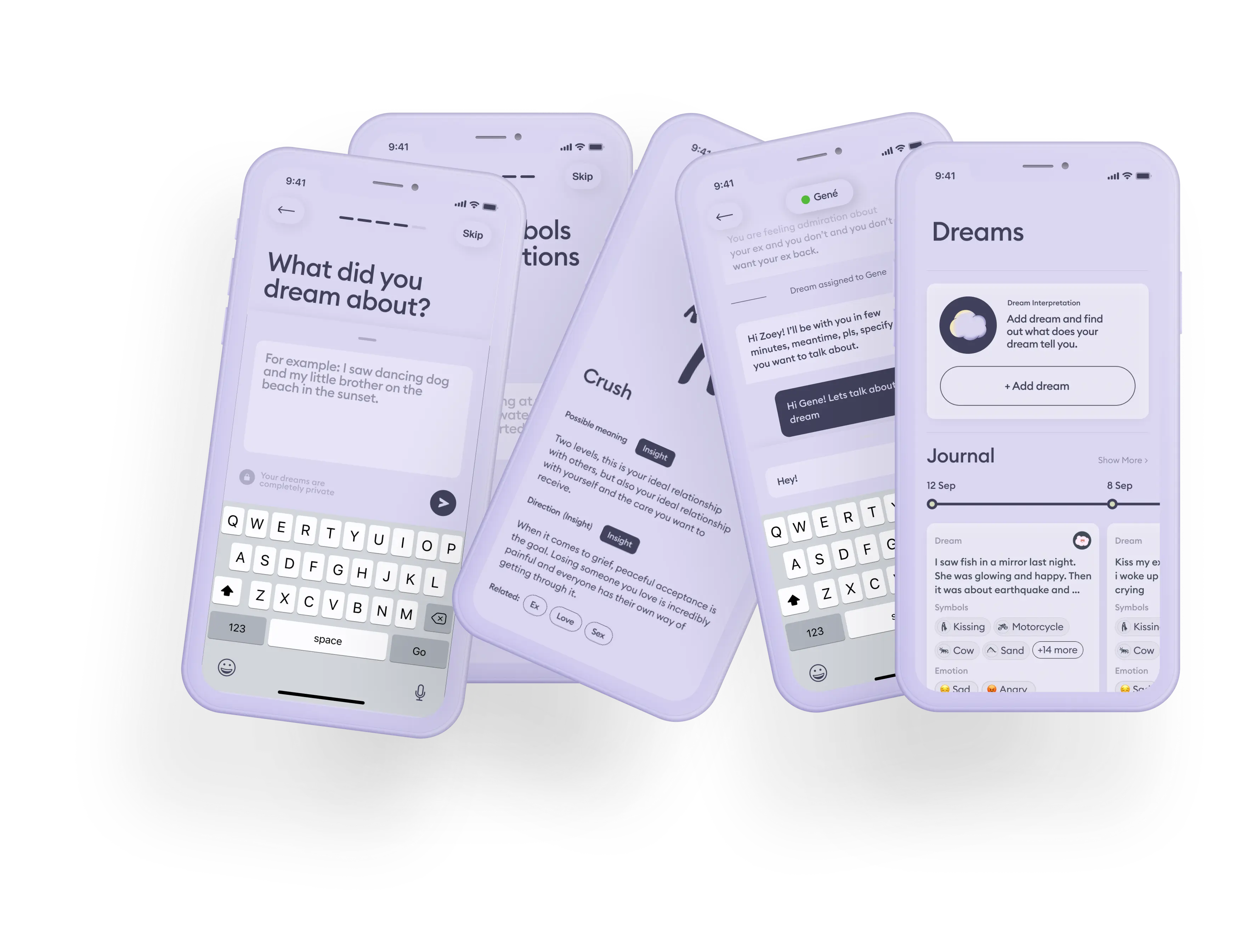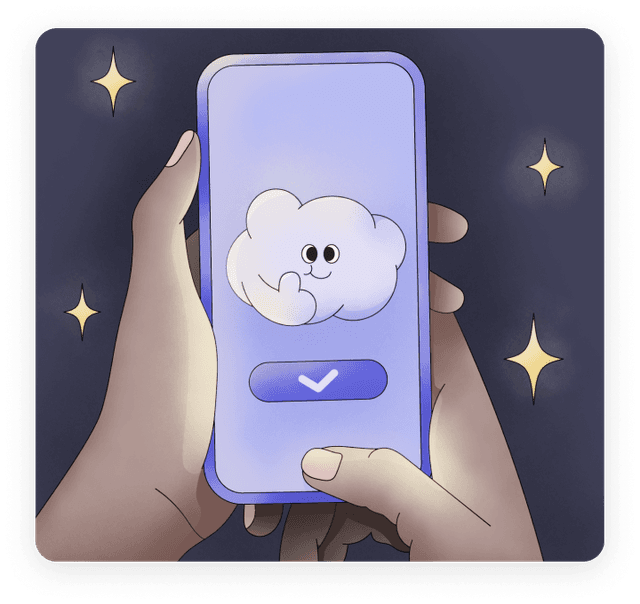
Denys Chumak
23 Oct 2024
Hypnagogic Hallucinations: What Are They
Have you ever been lying in bed, almost drifting off to sleep, when suddenly you see something strange? Maybe you hear a voice or even feel like something is touching you—something that isn’t really there? If you’ve had experiences like this, you might have encountered hypnagogic hallucinations. It can be unsettling and even scary, but these experiences are more common than you might think.
So, let me take you through what I discovered when I started asking myself, why do I have hypnagogic hallucinations?
Key Takeaways:
- Hypnagogic hallucinations happen when you’re falling asleep, and they’re very common, affecting up to 70% of people at least once in their life.
- They can be visual, somatic (feeling something), or auditory (hearing something), and are often harmless.
- In some cases, they’re associated with sleep disorders like narcolepsy or sleep paralysis.
- The experience can be scary, but understanding it can help ease the fear and anxiety.
What Are Hypnagogic Hallucinations?
I first stumbled upon the term hypnagogic hallucinations when I started noticing weird things happening as I was trying to fall asleep. It turns out that these are basically hallucinations that occur as you transition from wakefulness to sleep—right at that moment when your brain is starting to wind down.
It's not something that just happens in people with certain conditions; hypnagogic hallucinations can happen to anyone. In fact, up to 70% of people experience them at least once.
Now, hallucinations are often defined as false perceptions of objects or events involving one of our senses—sight, sound, smell, touch, or taste. So, if you've ever heard voices or seen things that aren't actually there while trying to fall asleep, you've likely experienced hypnagogic hallucinations.
Different Types of Hypnagogic Hallucinations
I never really thought about how weird my mind could be when I was close to sleep, but after some research, I learned that hypnagogic hallucinations can come in several different forms. Let me share the most common ones:
Visual Hallucinations
About 86% of hypnagogic hallucinations are visual. That means, as you’re about to doze off, you might see things like flashing lights, geometric patterns, or even vivid images like animals or faces. Imagine you’re staring into a kaleidoscope—shapes and colors that constantly shift and change.
That was something I experienced a lot before I understood what was happening. It can be a little jarring, especially if you don’t know why you’re seeing it. Sometimes, they’re not even shapes but actual things, like figures of people or animals.
Somatic Hallucinations
Somatic hypnagogic hallucinations involve physical sensations. They occur in about 25% to 44% of cases. Have you ever felt like you were floating, falling, or even like someone was in the room with you, even though you knew no one was there?
I once felt like I was weightless like I was drifting away from my body. It was intense! These can also be sensations of pressure or tightness, such as something pressing against you, which can make falling asleep feel a little like a mini nightmare.
Auditory Hallucinations
About 8% to 34% of hypnagogic hallucinations are auditory. That means you may hear sounds or voices that aren’t real. The sounds can range from hearing someone’s name being called to the sound of random noises, like footsteps or animal calls.
These auditory hallucinations can sometimes be unsettling because they can sound so real. Imagine hearing someone say your name, only to wake up and realize there’s no one around. That’s happened to me, and it’s enough to make you question your surroundings.
Why Do I Have Hypnagogic Hallucinations?
It’s natural to ask, "Why do I have hypnagogic hallucinations?" when it happens. I did the same. Here's what I found: what causes hypnagogic hallucinations is still being studied, but researchers have linked them to the process of falling asleep. As you transition between wakefulness and sleep, your brain waves slow down, and your senses can get all mixed up.
For instance, sleep paralysis is closely related to hypnagogic hallucinations. This can happen when the body is temporarily paralyzed as it enters or leaves REM sleep. You’re awake, but your body is still locked in sleep mode, so it can be a terrifying experience if you start to feel a presence or hear something while you can't move. In fact, sleep paralysis can make hypnagogic hallucinations even scarier.
Another reason for these hallucinations is simply stress or sleep deprivation. I found out that if you don’t get enough sleep, your body may get confused during the sleep cycle, causing more intense or frequent hypnagogic hallucinations. It’s also more common in people with narcolepsy or other sleep disorders, but it can happen to anyone.
What Causes Hypnagogic Hallucinations?
The question of what causes hypnagogic hallucinations also relates to how our brain works as we transition into sleep. The brain is still active, and it can sometimes mix dreams with reality. It's like your mind hasn't quite made the switch from conscious to unconscious.
One study mentioned that 37% of people experience these kinds of hallucinations, even if they don't have any underlying conditions. Sleep paralysis often occurs at the same time, making the experience even more intense.
Interestingly, people with schizophrenia or other mental health disorders can experience hallucinations at any time, including as they fall asleep. However, hypnagogic hallucinations are typically less distressing than the ones caused by these conditions because you know you’re in that in-between sleep state, and it’s easier to understand that they’re not real.
Scary Hypnagogic Hallucinations
Let me be honest—when scary hypnagogic hallucinations happen, they can really shake you up. I've had moments where I’ve woken up in the middle of the night, feeling like something was standing at the foot of my bed, and I couldn’t move. It turns out this is pretty common when sleep paralysis is involved with hypnagogic hallucinations.
The thing that makes them so scary is the sense of fear you experience during the episode. Your mind can make you believe that you're in danger, even though you’re perfectly safe.
Frequent Hypnagogic Hallucinations
Some people have frequent hypnagogic hallucinations, which can feel like an ongoing problem. If this happens to you often, it might be worth considering your sleep hygiene, stress levels, and overall health.
In my case, I found that when I wasn’t getting enough rest or when I was overly stressed, I was more likely to experience frequent hypnagogic hallucinations.
How to Handle Scary Hypnagogic Hallucinations and Sleep Paralysis
If you’re dealing with scary hypnagogic hallucinations or sleep paralysis, the best thing you can do is try to stay calm. I know it is easier said than done, but it's key to remind yourself that these are temporary and usually not dangerous.
Understanding that these experiences are linked to sleep patterns can help reduce anxiety. If you continue to experience them frequently, it’s always a good idea to talk to a healthcare professional.
Bottomline
Hypnagogic hallucinations can feel scary, but they’re a normal part of how the brain works when falling asleep. Understanding them can help you feel less afraid and sleep better.
Want to explore your dreams and understand your sleep better? Download DreamApp today. It helps you track your sleep, learn what your dreams mean, and discover more about your mind—all in one easy app. Sleep smarter and dream better with DreamApp.
FAQs
1. Can hypnagogic hallucinations be a sign of a serious condition?
Most of the time, hypnagogic hallucinations are harmless and just part of the sleep process. However, if they happen frequently or are accompanied by other unusual symptoms, it might be worth consulting a doctor.
2. How can I stop hypnagogic hallucinations?
Improving sleep hygiene, reducing stress, and getting enough rest can help reduce the frequency of hypnagogic hallucinations. Also, practicing relaxation techniques before bed may help.
3. Is sleep paralysis always linked to hypnagogic hallucinations?
No, sleep paralysis can occur on its own, but it often happens alongside hypnagogic hallucinations. Both are linked to disruptions in the sleep cycle.
4. Are hypnagogic hallucinations related to narcolepsy?
They can be, as narcolepsy is a sleep disorder where people experience disrupted sleep patterns. However, hypnagogic hallucinations can also occur in people without narcolepsy.
5. Are certain people more likely to experience hypnagogic hallucinations?
Yes, people with sleep disorders like narcolepsy, those under stress, or people who don’t get enough sleep may be more prone to experiencing them.
6. Can medications cause hypnagogic hallucinations?
Certain medications, especially those that affect the brain or sleep cycle, may trigger hypnagogic hallucinations. Always consult with a doctor if you suspect a medication is causing them.
Did you have an unusual dream with this symbol?
Let's analyze this dream with our expert!
At least five words, please.

Your dreams are completely private
Take control of your dream emotions in the free mobile app



The most recent users' dreams
Go to the user dreams page
Dream App
Free dream interpretations

(1,213)











